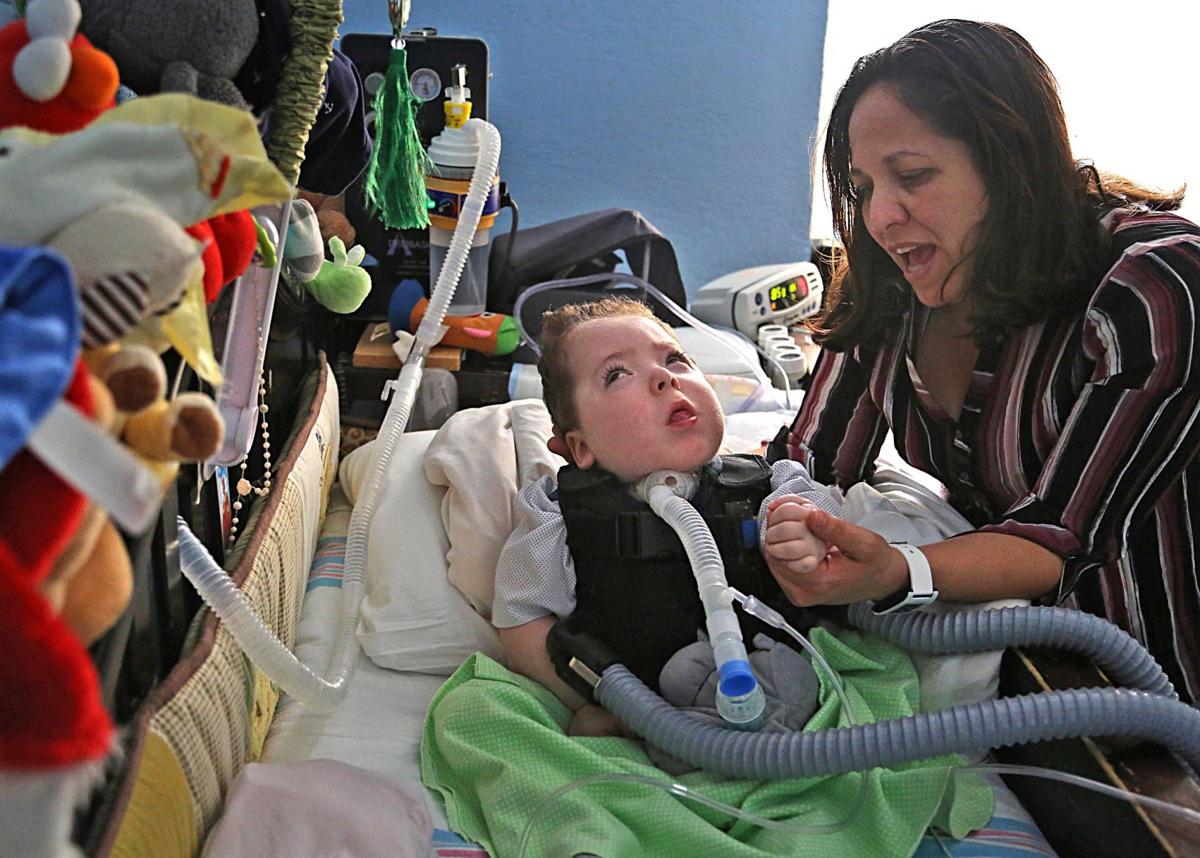The third time Alejandro Quesada nearly died he had yet to reach his first birthday.
As South Miami hospital announced an emergency code blue, the newborn went into cardiac arrest -- his heart, zero palpitations; his family, frantically praying.
"Everything was a blur, in slow motion. Dozens of people were rushing all around me. Right before his heart stopped, a priest was in the room baptizing my son," said Alejandro's mother, Lizzette Jimenez. "It was clear that he was about to be gone, but by a miracle, they resuscitated him, and he is still with us."
Months before going into cardiac arrest in 2012, Alejandro nearly died twice before, his mother said. This time, the baby's heart halted after oxygen stopped flowing to his brain.
"And yet again, he was resuscitated; brought back to life," Jimenez said. "Total of three times. He must have a purpose."
Alejandro -- now 5 years old -- was born prematurely at 26 weeks alongside his twin brother, Adrian. Adrian recovered after months in the neonatal intensive care unit. But because Alejandro's amniotic sac didn't have enough fluid, he lives with disabilities including cortical visual impairment, bilateral retinopathy of prematurity, brain atrophy and optic atrophy that will last throughout his life.
"Even though my son is paralyzed, eats through a feeding tube, can't walk or talk or see, he's very much in some ways like a normal 5-year-old," his mother said, caressing her son's cheek. "He loves to cuddle and loves to be engaged."
Her glossy eyes locked on his soft smile.
On most days, doctors say you can find the tiny boy listening and smiling to his favorite type of music -- instrumental symphonies by Mozart.
His family and team of around-the-clock nurses and therapists say the soothing sounds evidently bring him joy. They say they measure his emotions by his oxygen tank readings.
"There is no doubt that he likes to be around his family," said Juan Napoles, Alejando's respiratory therapist. "When he's happy, his oxygen numbers rise and turn green; his eyes light up. When he's uncomfortable or upset, he'll begin to crunch his nose and his vitals begin to dip. At that point the numbers turn red."
Still, the family keeps up its spirit. Near Alejandro's bedside is a sign: "World's bravest patient." On Sundays, the twins' father, Jose Quesada, likes to buy chocolate dessert as a special treat for the boys.
"Since Alejandro's brother enjoys most of the treat, and Alejandro is unable to eat due to his G-Tube, I like to take a tiny bit of the chocolate mousse from the top of the dessert and place it on his lip or tongue," Jimenez said.
She demonstrated with a tiny remnant from a chocolate fig bar. Seconds later, Alejandro stirred.
As the sugar penetrated his tongue, a smile swept across his face. Said his mother: "It lets me include him in the special moment too."


